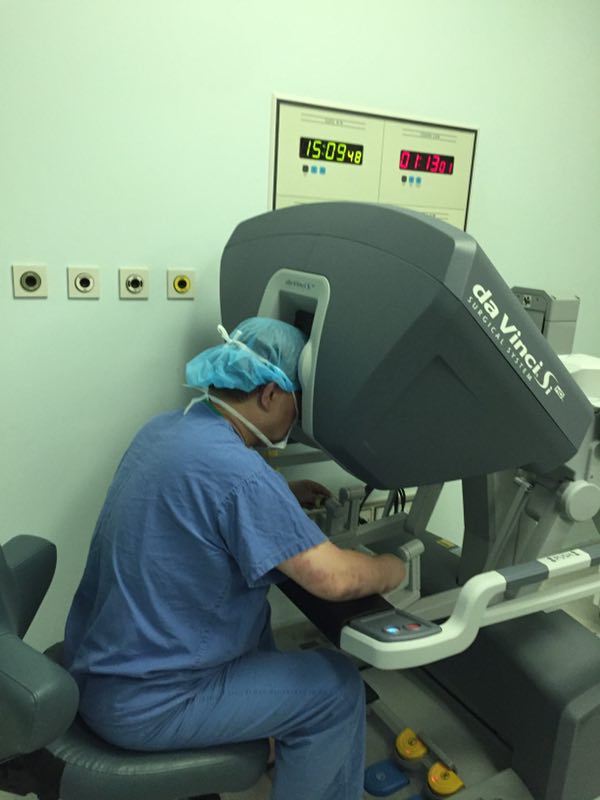On June 12, Renji Hospital affiliated to Shanghai Jiao Tong University School of Medicine successfully implemented the first domestic Da Vinci robotic fluorescence imaging assisted technique for radical prostatectomy plus pelvic enlarged lymphadenectomy for a high-risk prostate cancer patient. good. Fluorescence imaging assisted technology can help doctors to detect metastatic lymph nodes extremely sensitively during surgery, minimize lymph node dissection, shorten operation time, reduce surgical trauma, and reduce perioperative complications. Realize targeted surgery and precision medicine .
The patient was 62 years old and was diagnosed with an elevated PSA due to a physical examination. The serum total prostate specific antigen PSA was 61 ng/ml (normal value 0-4 ng/ml) at the time of patient visit, and prostate biopsy showed prostate adenocarcinoma. Pelvic NMR showed a significant increase in prostate volume, and the right iliac vessels were closed to the paraspinal lymph nodes.
The patient is a high-risk locally advanced prostate cancer with pelvic lymph node metastasis. In the traditional sense, metastatic prostate cancer has a poor prognosis, and the 5-year survival rate is only about 30%. Because the patient is younger and the general condition is better, consider the first new adjuvant therapy, reduce the tumor burden, and perform radical prostatectomy + pelvic enlarged lymph node dissection, in an effort to completely remove the tumor, achieve radical cure, and provide better patients. Long-term prognosis.

Dr. Xue Wei, the chief surgeon and director of the Department of Urology, Renji Hospital, operated the Da Vinci robot during surgery.
According to Prof. Xue Wei, the chief surgeon and director of the Department of Urology, Renji Hospital, in the developed countries of Europe and America, robotic assisted radical prostatectomy is the gold standard for surgical treatment of prostate cancer. The three key points of prostate cancer surgery, “tumor control, postoperative urinary function, and postoperative sexual function†have been proven to be fully protected by robot assistance, which is safer and more effective than other procedures. In addition, in radical surgery for high-risk prostate cancer, it is of great significance to expand lymph node dissection, which may maximize the removal of metastatic lymph nodes, provide patients with a better survival prognosis, and provide patients with more accurate clinical stages. However, due to the lack of reliable intraoperative real-time detection of metastatic lymph nodes, patients with locally advanced stage must undergo extensive lymph node dissection, the surgical wounds are extremely large, and the incidence of postoperative lymphatic leakage and lymphocystosis is high.
Medical Disposable Swabs,Sterile Transport Swabs,Medical Sterile Swabs,Disposable Sterile Swabs
Yancheng Rongtai Labware Co.,Ltd , https://www.rongtailab.com